Hubbard Radio Washington DC, LLC. All rights reserved. This website is not intended for users located within the European Economic Area.
On Air: Federal News Network

Note to agencies: Innovation and security do go hand in hand
August 4, 2021
Experts from the Cybersecurity and Infrastructure Security Agency, State Department, Defense Logistics Agency, Microsoft Federal and ServiceNow will explore how innovation and security can happen in tandem.
Date: August 4, 2021
Time: 2 p.m. ET
Duration: 1 hour
Cost: No Fee
Accreditation: Training Certificate for 1 CPE*
Every day seems to bring different pandemic news. The result is continuing uncertainty about when masses of employees will return permanently to their offices. Consensus is emerging that organizations, including federal agencies, will need to support a variety of work modes.
Therefore it’s time for agencies to move to the next phase of more innovative, sustainable support processes – onboarding, equipping, and ongoing technical support for people collaborating in hybrid modes. IT staffs thus moving must balance great user experience and cybersecurity. For how agencies are thinking about this, Federal News Network with ServiceNow and Microsoft Federal asked a panel of civilian and defense federal IT practitioners.
Robert Hankinson, the director of information technology infrastructure at the State Department, said the pandemic response “push us along to get us to where we needed to go and to remove some obstacles out of our way.” He cited increased user mobility and more comprehensive cybersecurity, and said the remote working in a sense provided the space to move applications to the cloud and institute zero trust architectures.
At the Defense Logistics Agency, Chief Information Officer George Duchak emphasized the need to support more telework than the agency has traditionally supported. The DLA was already deeply into cloud computing, he said, so the telework will expand “because we have to compete for the same talent and with the private sector. So if the private sector is moving in this direction, we’re going to have to move in this direction as well, just to compete for that same talent.” At the same time, he said DLA’s data and analytics officers will help develop performance measurement metrics so both employees and the agency benefit.
Martin Stanley, branch chief of Strategic Technology at the Cybersecurity and Infrastructure Security Agency, noted CISA’s dual role of operating as an agency and giving cyber advice and products to the rest of government.
CISA, Stanley said, will in part focus on zero trust in the context of hybrid work – some in the office and some teleworking. He noted CISA’s technology roadmap to future technology capabilities, its work with NIST to develop zero trust guidance, and its launch of mobile services aimed at app vetting and greater security.
Agencies will need to keep innovating features and functions, while maintain the latest cybersecurity best practices, according to Kevin Brooks, the principal digital strategist for the DOD and U.S. Intelligence community at ServiceNow.
“The hybrid work model isn’t just about the current workforce,” Brooks said. “It’s the future of government federal work. I look forward to every government agency hiring a chief experience officer, to ensure that the CFO and the data officer have a peer who can help ensure that we are delivering the capability that the employees and customers both want.”
Agencies can enable this future by shifting their view of productivity and communications tools as something to equip individuals to something to equip groups that collaborate. That’s according to Microsoft Federal’s chief technology officer, Susie Adams.
“What we’ve learned,” Adams said, “is that in this new world, we’re really going to have this hybrid paradox. And this is a global phenomenon where people are going to be working remotely. [In] some of the things we just announced at our partner summit, we’re thinking differently about people and process, and how they communicate together, breaking down those silos.”
Learning objectives:
- Security in a hybrid work environment
- Device strategies
- How zero trust factors into the hybrid work environment.
Complimentary Registration
Please register using the form on this page or call (202) 895-5023.
This program is sponsored by
![]()

How to access the content: Please note, you may need to re-enter your registration information if you previously registered for this webinar and returned to page after clearing your cookies or using a private browser.
By providing your contact information to us, you agree: (i) to receive promotional and/or news alerts via email from Federal News Network and our third party partners, (ii) that we may share your information with our third party partners who provide products and services that may be of interest to you and (iii) that you are not located within the European Economic Area.
Please register using the form on this page.
Have questions or need help? Visit our Q&A page for answers to common questions or to reach a member of our team.
Speakers
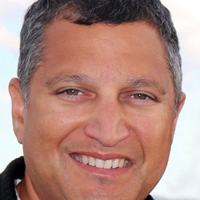
Martin Stanley
Branch Chief, Strategic Technology, Cybersecurity and Infrastructure Security Agency
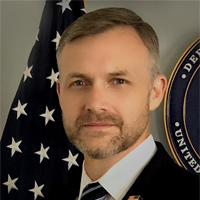
Robert Hankinson
Director of Information Technology Infrastructure, Department of State
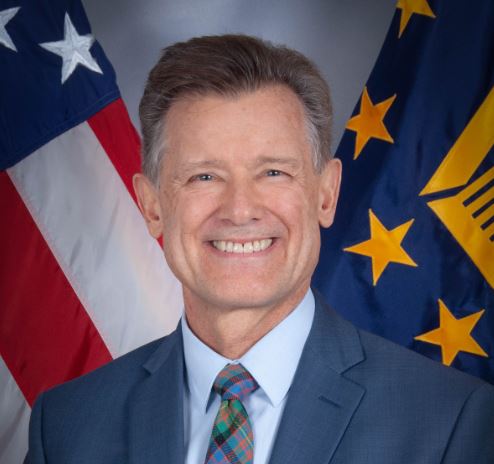
Dr. George Duchak
Chief Information Officer, Defense Logistics Agency
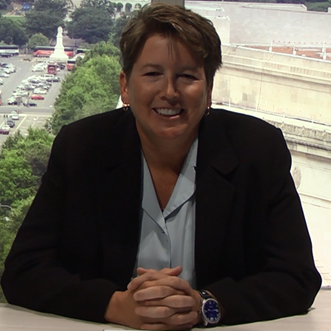
Susie Adams
Chief Technology Officer, Sales, Microsoft Federal
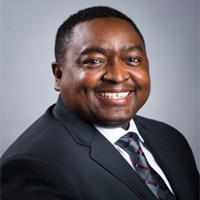
Kevin Brooks
Principal Digital Strategist, DoD & U.S. Intelligence Community, ServiceNow

Tom Temin
Host, The Federal Drive, Federal News Network
By providing your contact information to us, you agree: (i) to receive promotional and/or news alerts via email from Federal News Network and our third party partners, (ii) that we may share your information with our third party partners who provide products and services that may be of interest to you and (iii) that you are not located within the European Economic Area.
